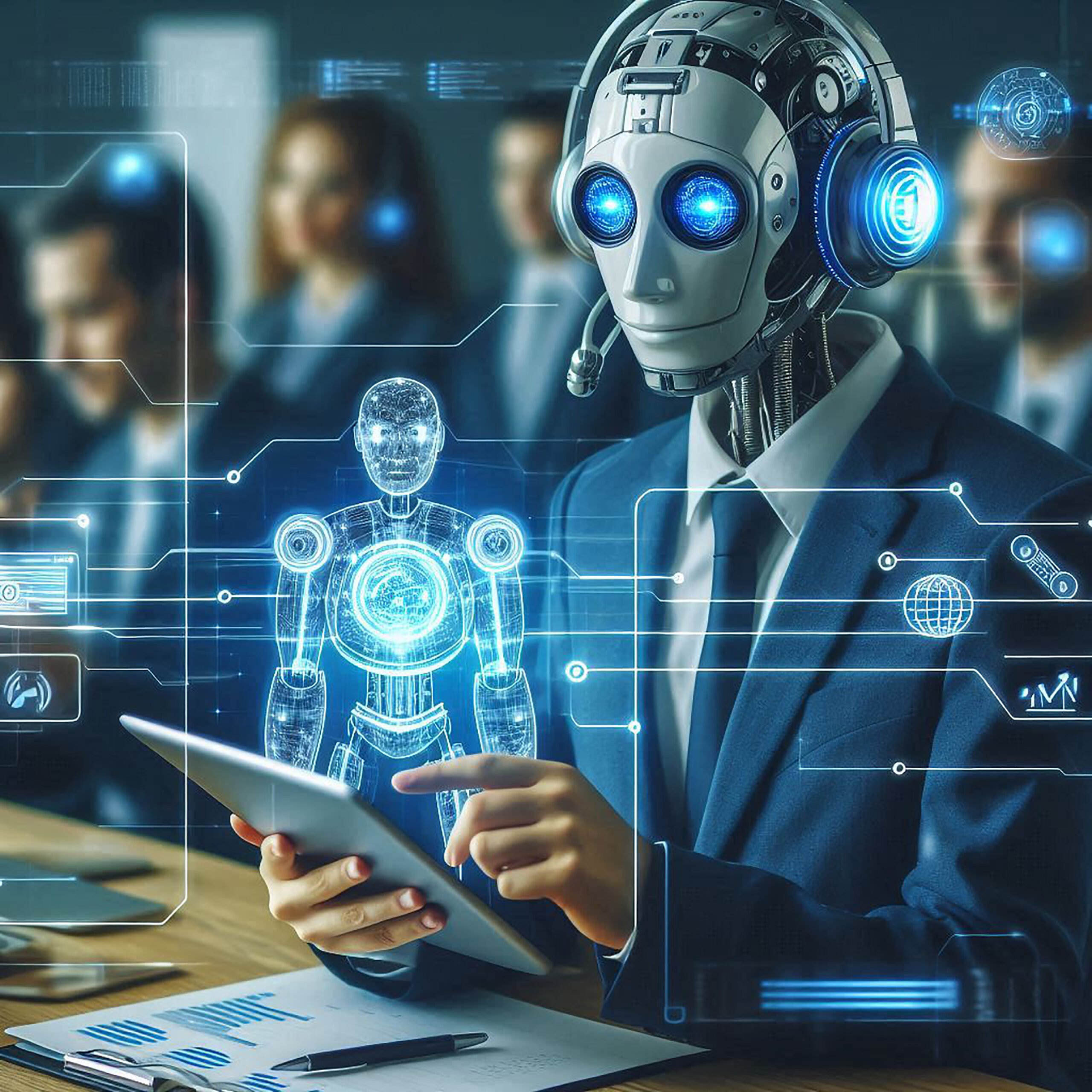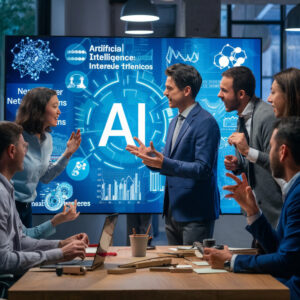AI Agents 2025: The Revolutionary Shift in Business Automation
Artificial intelligence agents are poised to become the cornerstone of business transformation in 2025, marking a pivotal shift from traditional AI models to comprehensive AI ecosystems that will revolutionize how companies operate and scale their operations.
We strongly recommend that you check out our guide on how to take advantage of AI in today’s passive income economy.
Table of Contents
The Dawn of AI Agent Integration
The landscape of artificial intelligence is undergoing a remarkable transformation, as demonstrated by groundbreaking implementations across various industries. Consider the profound impact at Clara, a global payment provider serving 150 million customers worldwide. Their strategic deployment of AI agents has showcased the immense potential of automated customer service solutions, handling an impressive 2.3 million customer interactions within just the first month of implementation.
Quantifiable Success in AI Implementation
The implementation of AI agents at Clara yielded extraordinary results that underscore the potential of AI agents in 2025. Their AI-powered system effectively matched the workload of 700 full-time customer service representatives while maintaining customer satisfaction levels comparable to human agents. More impressively, the AI system demonstrated superior accuracy in issue resolution, resulting in a 25% reduction in repeat inquiries.
Revolutionizing Customer Service Efficiency
The impact of AI agents extends beyond mere replacement of human workforce. The transformation in service delivery efficiency has been remarkable, with average resolution times plummeting from 11 minutes with human agents to just 2 minutes with AI assistance. This efficiency translated into substantial financial benefits, with Clara projecting $40 million in additional profit attributed directly to their AI implementation.
Strategic Business Integration
The transition to AI agents represents more than technological advancement; it signifies a fundamental shift in business operations. Forward-thinking companies are discovering innovative ways to leverage AI capabilities across various departments, from marketing to human resources, creating seamless integration between human expertise and artificial intelligence.
The Four Pillars of AI Ecosystems
The emergence of AI agents in 2025 will be supported by four crucial components that form the foundation of successful AI integration. These pillars include sophisticated AI models, post-training refinement processes, internal support tools, and agent functionality frameworks. This comprehensive approach ensures optimal performance and adaptability across different business contexts.
Customization and Adaptation
The effectiveness of AI agents lies in their ability to be customized according to specific business needs. This includes adaptation to industry-specific terminology, pricing structures, service offerings, and operational procedures. Such customization ensures that automated processes align perfectly with existing business frameworks while improving efficiency and accuracy.
The Future of Task Automation
OpenAI’s anticipated release of their autonomous agent system, coupled with task scheduling capabilities, promises to revolutionize how businesses manage long-term projects and routine operations. This development will enable companies to schedule and automate tasks up to two years in advance, representing a significant leap forward in business process automation.
Human Oversight in Automated Systems
While automation capabilities continue to expand, the role of human expertise remains crucial. Specialized human oversight ensures quality control and maintains alignment with business objectives. This hybrid approach maximizes the benefits of AI agents while minimizing potential risks associated with fully autonomous operations.
Impact on Workplace Dynamics
The integration of AI agents is reshaping traditional workplace structures. Routine office tasks are being automated, creating new opportunities for workers to focus on strategic initiatives and creative problem-solving. This shift demands new skill sets and creates opportunities for positions focused on AI system management and optimization.
Training and Integration Expertise
Success in the AI agent era requires specialized knowledge in both technical implementation and industry-specific applications. Companies that invest in training programs and develop internal expertise in AI integration will gain significant competitive advantages in their respective markets.
Economic Implications
The financial impact of AI agent integration extends beyond immediate cost savings. Companies implementing these systems are experiencing improved operational efficiency, reduced error rates, and enhanced customer satisfaction. These improvements contribute to sustainable long-term growth and market competitiveness.
Future Prospects and Opportunities
As AI agent technology continues to evolve, new opportunities for innovation and business transformation will emerge. Companies that embrace these changes and adapt their operations accordingly will be better positioned to thrive in the increasingly automated business landscape of 2025 and beyond.
Conclusion
The rise of AI agents in 2025 represents a transformative moment in business evolution. Organizations that understand and embrace this shift will gain significant advantages in efficiency, customer service, and market competitiveness. The key to success lies in strategic implementation, appropriate human oversight, and continuous adaptation to emerging capabilities and opportunities.

We strongly recommend that you check out our guide on how to take advantage of AI in today’s passive income economy.




